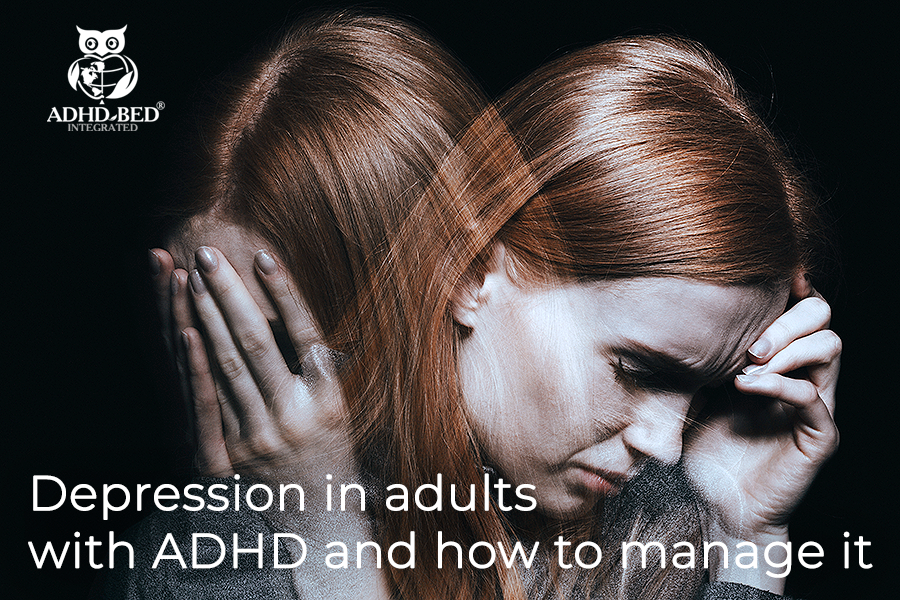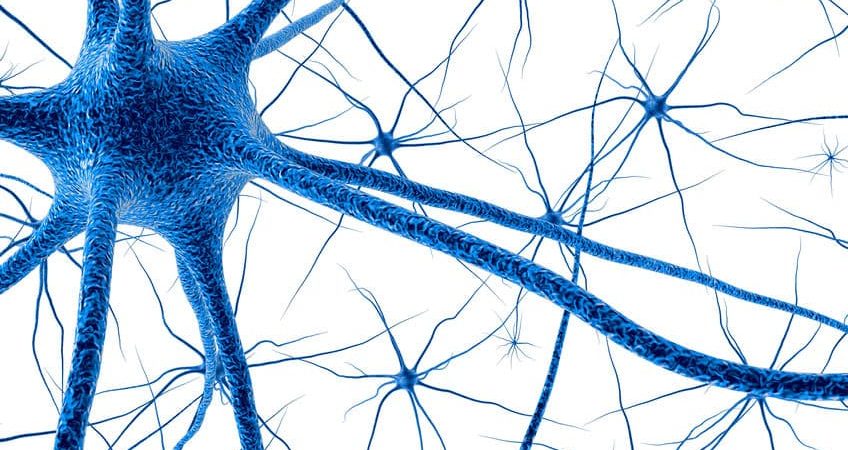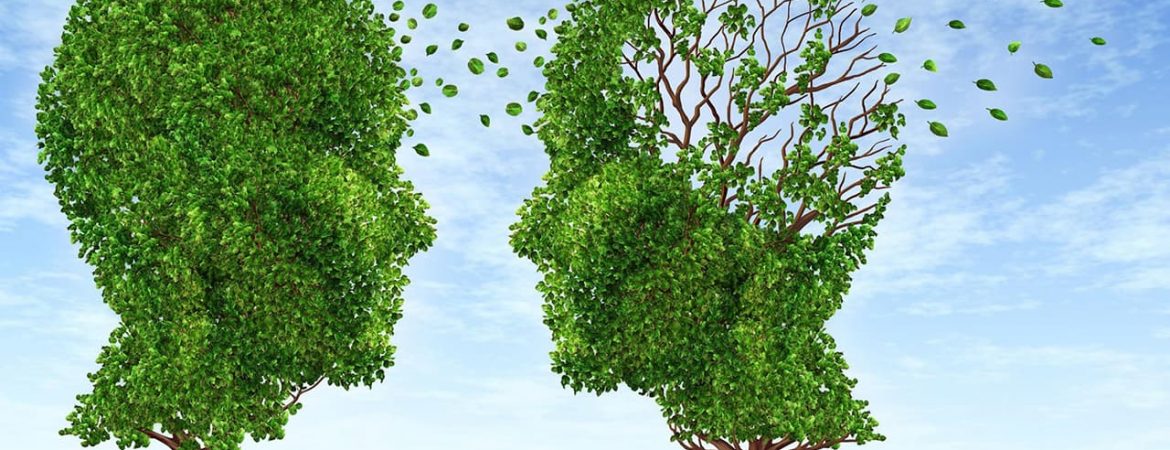Table of Contents
Introduction
Attention Deficit Hyperactivity Disorder (ADHD) is the most common childhood neurodevelopmental disorder in the world. It is characterised by symptoms of inattention, hyperactivity and/or impulsivity, which typically begin in childhood and can manifest into adulthood. ADHD affects approximately 2% of the adult population. Adults with ADHD commonly have trouble with concentrating on a task, inhibiting impulsive and hyperactive behaviour and regulating emotions. If these symptoms remain unaddressed, such difficulties can be disruptive in every day life and negatively affect a person’s relationship with the people around them.
Moreover, ADHD comes with a high risk of developing comorbid psychiatric disorders like anxiety, depression, binge eating disorder and bipolar disorder. Studies have reported that adults with ADHD are three times more likely to develop depression. The presence of other co-occurring disorders and comorbidities can complicate the treatment and recovery process of ADHD, leading to greater burden of disease and poorer life outcomes. Thus, it is important for ADHD patients to understand the possible symptoms of depression in ADHD and for their healthcare providers to actively screen for and treat these comorbid conditions.
This article will specifically describe the relationship between depression and ADHD, highlight the factors maintaining the presence of depression in adults with ADHD and detail the tips on how to manage depression in ADHD.
The Intersection of ADHD and Depression
Adults with ADHD have an increased risk of developing depression. The link between ADHD and depression can be explained by the underlying shared neurobiological mechanisms and poor emotional regulation.
Shared Neurobiological Mechanisms
The development of ADHD has been linked to the structural deficits in the frontal brain regions that are responsible for attention, executive function and emotional regulation. Additionally, the chemical release of neurotransmitters are altered in the ADHD brain, where there is a significant reduction of dopamine and noradrenaline levels. The lack of dopamine and noradrenaline release in ADHD has been theorised to underlie the symptoms of ADHD surrounding poor attentional control and behavioural regulation.
Similarly, these structural and functional deficits are also implicated in depression, as these cortical and neurotransmitter pathways are responsible for an individual’s reward-processing and mood regulation.
Emotional Regulation
People with ADHD and people with depression both suffer from emotional dysregulation, which is the inability to appropriately regulate emotional states in response to one’s environment. Research has suggested that poor emotional regulation mediates the relationship between the development of depression symptoms in both children and adults with ADHD. Thus, ADHD patients are more vulnerable towards developing depression if they have poor emotional regulation skills.
Recognising Depression in Adults with ADHD
With the risk of adults with ADHD developing depression, it is important to regularly screen patients for depressive symptoms. However, recognising depression in adults with ADHD can be challenging, given the context of ADHD in which there are many overlapping symptoms between both conditions. This might make it difficult to differentiate between ADHD-related symptoms with those of depression. For example, some ADHD patients may just have attentional difficulties in which they lose interest quickly, but this might be recognised as the anhedonia commonly observed in depression. This may lead to misdiagnosis, which can prevent patients from successful recovery. Thus, it is important for healthcare professionals to complete a comprehensive assessment on their patients, in order to appropriately differentiate between the symptoms of ADHD or depression.
Factors Contributing to Depression in Adults awith ADHD
Some factor contributing to the development of depression in adults with ADHD can include:
Chronic stress. Adults with ADHD may experience higher levels of stress due to the frustration that can occur as a result of living with ADHD, where one’s overall functioning and wellbeing in life is negatively impacted. If this frustration is unaddressed and becomes chronic, adults with ADHD may struggle to cope and may be at risk of developing depression.
Social & interpersonal difficulties. Adults with ADHD can find it difficult to function in daily life and across various social settings. With the negative impacts of ADHD on interpersonal and social functioning, patients of ADHD may become frustrated and isolate themselves from social interactions. Thus, difficulties with social relationships in the interpersonal domain can pose as a potential trigger for depression in ADHD.
Negative self-perception. ADHD patients with negative self-perception are at risk of developing depression. Individuals with negative self-perception tend to engage in negative self-talk. Negative self-talk involves extremely negative thoughts and beliefs that create a pessimistic inner voice that constantly criticizes one’s own attributes and capabilities. This can exacerbate symptoms of depression.
Managing Depression in Adults with ADHD
Due to the complex nature of comorbid depression and ADHD, treatment approaches should be tailored to the individual patient in order to effectively address symptoms of both conditions simultaneously. The treatment methods used to manage depression and ADHD may involve psychotherapy, medication and lifestyle approaches.
Psychotherapy
Psychotherapy is an effective tool for managing co-occurring for depression and ADHD. Common forms of psychotherapy includes Cognitive Behavioural Therapy (CBT) and mindfulness-based interventions.
CBT. CBT is a popular form of treatment for ADHD and depression. CBT as an intervention involves the reconstruction of a person’s cognitive beliefs, particularly negative or maladaptive thoughts that may be maintaining their depression. The process of CBT involves active participation from the patient, as the mental health professional guides them through tasks like identifying negative beliefs, setting goals, establishing coping strategies and building skills like problem solving and interpersonal communication. Specific to depression in ADHD, CBT can help patients target and improve their coping skills, emotional regulation and cognitive reappraisal.
Mindfulness-based interventions. Mindfulness is the therapeutic practice of focusing on the moment at present, and involves the processes of acceptance and compassion towards the self through meditation techniques. Examples of mindfulness practices include meditation, yoga and breathing techniques. Mindfulness-based interventions incorporates mindfulness practices into therapeutic interventions to treat symptoms of depression or ADHD. For example, mindfulness-based CBT has been found to effectively reduce ADHD and depression symptoms, supporting the use of mindfulness-based interventions in the treatment comorbid depression in ADHD.
Medication
Stimulant and non-stimulant medications are widely used to treat ADHD. The two most common stimulant medications are methylphenidate and dexamphetamine, which have shown to improve attentional control, emotion regulation, concentration and symptom severity. Moreover, effective treatment of ADHD symptoms will likely lead to an improvement in comorbid psychiatry symptoms. Specifically, atomoxetine (i.e., a non-stimulant medication used to treat ADHD) has been shown to also improve depression and anxiety symptoms. Antidepressants commonly used to treat depression, such as SSRIs, are found to be especially effective in treating comorbid depression and ADHD when used in conjunction with ADHD stimulant medications.
It is to be noted that taking medications may have side effects like decreased appetite, difficulties sleeping, nausea, irritability, changes in mood and headaches. Prior to considering medication treatment, patients should seek the advice of their healthcare providers.
Lifestyle Changes
Generally, lifestyle changes are highly recommended to support the recovery journey from ADHD and any comorbid conditions. Some lifestyle modifications can include:
Regular exercise. Physical exercise, in the form of aerobic/cardiorespiratory fitness, has been demonstrated to be effective in improving the cognitive symptoms of ADHD. While exercise should be promoted to the general population for optimal health, it is highly recommended for people with psychiatric conditions due to the higher risk of having poorer health outcomes. Having regular exercise will not only improve health outcomes, but also support the recovery from ADHD and depression.
Healthy sleep habits. Getting a good night’s sleep plays an important role in symptom management of ADHD and depression. A lack of sleep can be detrimental towards a person’s physical and mental health, especially for adults living with ADHD. Because chronic sleep deprivation can be associated with cognitive impairment, improving the quality of sleep may aid in alleviating the cognitive deficits observed in ADHD and improve symptom management, especially with comorbid depression.
Building Coping Strategies
As highlighted in CBT, it is important for patients with comorbid depression and ADHD to develop healthy and effective coping strategies to appropriately manage the challenges commonly faced in ADHD. Practical coping strategies may include avoiding triggers, replacing maladaptive coping mechanisms with positive ones, positive self-talk and having an action plan in the face of depression triggers. Building coping strategies and implementing them into daily life will allow patients to practice and enhance their emotional regulation skills to mitigate depression triggers. Importantly, effective coping strategies are developed under the guidance of mental health professionals and implemented under the support of a patient’s support networks.
Promoting Self-Acceptance and Resilience
Throughout the journey of symptom management and recovery in depression and ADHD, it is important for patients to be kind towards themselves through practicing self-acceptance and resilience. The journey will not be linear, so it is crucial for patients to practice self-compassion and foster resilience through embracing every strength and success — no matter how big or small. To promote self-acceptance and resilience, setting realistic goals and celebrating incremental progress can help patients manage their expectations while making steady improvements in recovery. In moments of drawbacks or mental blocks, the self-compassion and resilience fostered will allow patients to accept them as part of the recovery journey, without feeling overly discouraged.
Overcoming Treatment Barriers
Barriers or obstacles towards effective treatment and successful recovery are normal and very common. Some potential obstacles with comorbid conditions may include the presence of other medical conditions, treatment contraindications, misdiagnosis, lack of ease in accessibility to healthcare services and limited resources.
To overcome these treatment barriers, it is important for patients to have open communication with their healthcare providers. Every patient will have different circumstances and challenges in treatment, so seeking the support and advice from their doctors will be the best way to overcome these obstacles. Voicing your concerns to your provider will allow them to understand your experience and troubles in managing your symptoms, as a means of providing the most appropriate treatment plan tailored to your needs.
The Role of Support Systems
With the complicated nature of comorbid and dual-diagnosis conditions, it is important to have a supportive network of family and friends to motivate and push you through the recovery journey. Having a support system to keep you accountable in achieving goals and celebrating those milestones can improve motivation levels and improve mental wellbeing. External support groups and peer networks are also highly recommended as patients are able to share their experiences and strategies in managing symptoms. Empathising over shared experiences can also be highly validating and promote positive thinking.
Conclusion
Overall, the current article described the common co-occurrence of depression in ADHD in adults and the underlying processes that contribute to and maintain comorbid depression and ADHD. Depression in ADHD can be a highly complex condition that is more difficult to identify and treat, leading to greater burden of disease and poorer life outcomes. To effectively manage depression in ADHD, some therapeutic options were discussed: medication, psychotherapy and lifestyle changes. Various tips on building coping strategies, promoting self-acceptance and resilience, overcoming treatment barriers and fostering supportive networks were also discussed to support the management of both conditions. Individuals with comorbid depression and ADHD are highly encouraged to seek professional help, implement appropriate coping strategies and find hope in managing both conditions.
References
Song, P., Zha, M., Yang, Q., Zhang, Y., Li, X., & Rudan, I. (2021). The prevalence of adult attention-deficit hyperactivity disorder: A global systematic review and meta-analysis. Journal of global health, 11, 04009. https://doi.org/10.7189/jogh.11.04009
American Psychiatric Association. (2022). Diagnostic and statistical manual of mental disorders (5th ed., text rev.). doi.org/10.1176/appi.books.9780890425787
Katzman, M. A., Bilkey, T. S., Chokka, P. R., Fallu, A., & Klassen, L. J. (2017). Adult ADHD and comorbid disorders: clinical implications of a dimensional approach. BMC Psychiatry, 17(1). doi:10.1186/s12888-017-1463-3
Bodalski, E. A., Knouse, L. E., & Kovalev, D. (2018). Adult ADHD, Emotion Dysregulation, and Functional Outcomes: Examining the Role of Emotion Regulation Strategies. Journal of Psychopathology and Behavioral Assessment. doi:10.1007/s10862-018-9695-1
Knouse, L. E., Zvorsky, I., & Safren, S. A. (2013). Depression in Adults with Attention-Deficit/Hyperactivity Disorder (ADHD): The Mediating Role of Cognitive-Behavioral Factors. Cognitive Therapy and Research, 37(6), 1220–1232. doi:10.1007/s10608-013-9569-5
Poissant, H., Moreno, A., Potvin, S., & Mendrek, A. (2020). A Meta-analysis of Mindfulness-Based Interventions in Adults with Attention-Deficit Hyperactivity Disorder: Impact on ADHD Symptoms, Depression, and Executive Functioning. Mindfulness, 11, 2669–2681. doi:10.1007/s12671-020-01458-8



